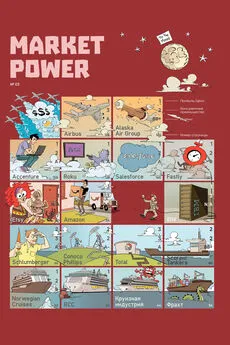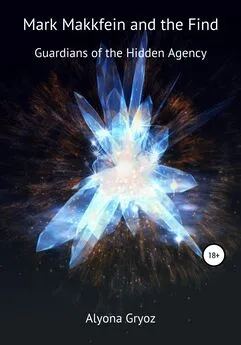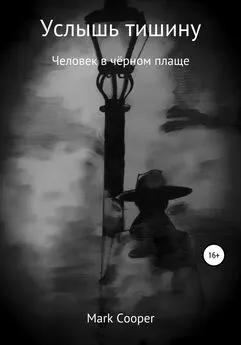Mark Mills - Amagansett
- Название:Amagansett
- Автор:
- Жанр:
- Издательство:неизвестно
- Год:неизвестен
- ISBN:нет данных
- Рейтинг:
- Избранное:Добавить в избранное
-
Отзывы:
-
Ваша оценка:
Mark Mills - Amagansett краткое содержание
Amagansett - читать онлайн бесплатно ознакомительный отрывок
Интервал:
Закладка:
‘It don’t matter when.’
‘He’s no cause to lie.’
‘And nor do you.’
It can’t have been rehearsed, but it worked—a gentle yet firm assault on all fronts, each chipping in their bit, having their say.
‘Yeah, I knew her.’
It explained a lot, Rollo knowing. It explained his reaction when they’d pulled Lillian from the ocean—silent, shrinking, living Conrad’s horror. It explained his blind fury when he came to Conrad’s aid in the parking lot at Oyster Hall, and his attentiveness in the following days. It explained a lot he should have picked up on before, but hadn’t, and he wondered what else he’d missed.
The current, for one. If Conrad knew her body should have been carried further eastward by the longshore drift, then Rollo certainly did. He could read the waters off the back side better than anyone.
‘Where’s Rollo?’ he asked.
‘He’s okay,’ said Ned. ‘A little upset is all.’
‘How’s that?’
‘I had to work it out of him. He’s been acting odd for a bit now; was worse than ever Saturday after you two went tuna fishing.’
‘Yeah?’
‘He thinks you’ve got a problem with the girl’s brother.’
‘Her name’s Lillian.’
‘Do you?’ demanded Cap’n Jake.
Conrad felt a sudden urge to unburden himself, but as he looked into their eyes he saw what he already knew: that they hadn’t come here for him, they’d come here for themselves.
‘Yes, I knew Lillian Wallace,’ he said. ‘As for the rest, I couldn’t say; you’ll have to take it up with Rollo.’
‘What passed between you and this…Lillian is your business,’ said Cap’n Jake. ‘Anything else is ours too.’
Conrad got to his feet. ‘Are we done here?’
‘Not if that’s your attitude,’ said Frank Paine.
Conrad fastened his eyes on him. ‘You don’t understand. I’m asking you to leave.’
Glances were exchanged, but what could they do? A man was entitled to call the shots in his own home.
Conrad made a point of holding the door open for them. Ned lingered while the others headed to the trucks.
‘I done some asking,’ he said. ‘They’re rich folk them Wallaces, powerful folk, with pull. You think we don’t already have us enough problems with that bill comin’ up in Albany?’
‘This isn’t about fishing.’
‘You’re a fisherman. You do anything rash, we all look bad. You know that.’
In the last year there’d been a marked rise in hostilities between the local fishermen and the recreational anglers, who had taken to dumping scrap iron in the favored dragging spots so the nets got hung up and torn. Gear left on the beach overnight would be sabotaged. Any kind of retaliation had the sports racing for the State Assembly in Albany, like the school bully running to teacher with a bloody nose. Just the month before, Seth Tuttle had taken a knife to the tires of a surfcaster’s sedan. The lawyers pushing for the bass bill were all over it still.
‘They’ll bend it any way they like if you give ‘em the excuse,’ said Ned.
‘They don’t need an excuse. One thing I’ve learned: money takes what it wants then comes back for more.’
‘We’ll beat them.’
‘This year, maybe. Next, too. But they’ll keep coming back, they’ll win in the end, they always do.’
Ned glanced over at the others waiting in the trucks.
‘I’m sorry for the girl,’ he said, looking back. ‘I am. But if anything happens to Rollo, you’ll have me to answer to.’ He paused. ‘You put a mark on my word, you hear me?’
Conrad nodded.
‘He won’t be pitchin’ up for work no more. If he shows, you turn him away.’
The moment the trucks left, Conrad felt the strength drain out of him through his boots. He set about tidying away the cups, but found himself reaching for a chair and slumping into it.
Rollo was the closest thing he had to kin. He was alone—the way it had to be, he knew that—but he hadn’t seen it hitting so hard. At least it had come from Ned, at least he’d been spared the task of driving Rollo off. His plan had been to lie, fall back on the ribs as an excuse, to suggest they take a break for a week or so while he fully recovered, by which time it should all be over.
He had played the scene with Rollo in his head, but he hadn’t thought about how it might hit him. There was no solace in the seclusion, just one scrap of comfort: Rollo was safe now; he couldn’t be damaged by the misfortune that seemed intent on dogging Conrad, circling him, sparing him while picking off those around him, almost in mockery.
He had never discussed it with anyone, fearing that his words would only breathe more life into the specter. It was the men of his Company in Italy who had first forced the issue into the open.
He wasn’t the only one to survive the grueling assault on Monte la Difensa—their first bitter taste of combat in Italy—but few who had been in the thick of the fight had emerged completely unscathed. Twice he’d been lifted clear off his feet by the vacuum of a shell from an enemy 88 snapping past his head. He had cowered like all the others as lead from the MG-42s tore into the icy rock around them, but not once had he been so much as nicked by one of the lethal shards of flying granite. He had seen the aluminum fin of an enemy shell embed itself in the forehead of a man crouching beside him in a German slit trench they’d only just occupied; and against all apparent logic he’d witnessed a good friend disappear in a plume of scarlet vapor when the fellow was standing further from the mortar burst than himself.
At night, the time when they did most of their work, it was as if an invisible hand was swatting away the tracer bullets arcing through the darkness towards him, like shooting stars fallen to earth. One time, returning from a raid, he had been bounding over the rocks back to his lines when he collided with an enemy soldier coming in the opposite direction. Thrown to the ground, they both spilled their weapons in the darkness. The German was first to react, snatching up the nearest gun, which happened to be Conrad’s M-1, beating him to the draw. The M-1 jammed. The German’s Schmeisser didn’t.
‘You’re one lucky sonofabitch,’ Dexter had remarked one night during a welcome lull between barrages. By now they had secured the summit, repelling numerous German counterattacks, and were preparing for an assault on the saddle below so the British could have a crack at the peak of Monte Camino. It was a cold night with a light sleet falling and they were hunched beneath their ponchos, spread out in foxholes along the first line of defense.
‘I want her number, Labarde,’ called Crane.
‘Who’s that?’
‘Your fairy godmother.’
‘Me, I got a lucky rabbit’s foot,’ came another voice.
‘Not so l-l-l-ucky for the goddamn r-r-r-abbit.’
The laughter built quickly along the line until they were all creased up—young men; boys, most of them—finding a vent for their confusion and fear.
Maybe the German forward observers heard them, maybe not, but the mortars started landing again. They really worked them over this time. When it was done, the joker in the night—the stocky lumberjack from Wyoming with the stammer—had bought it from a direct hit.
Dexter hurried over to his foxhole to check on him. ‘He’s like God.’
‘You mean with God,’ said someone.
‘I mean God is everywhere.’
Not long after, with their combat casualty rate nudging sixty per cent, they were pulled out of the mountains and assigned to the thirty-two-mile-long stalemate that was the Anzio beachhead. Caught unawares by the amphibious landing deep behind their lines, the German army had soon retrenched and began throwing everything they had at the Allied forces, intent on driving them back into the sea. Penned in like cattle in a narrow corral, they were strafed and bombed from the air. Long-range 88mm and 170mm artillery shells rained down on them day and night, as did the flak from their own anti-aircraft guns, almost as deadly.
That first month, shell fragments accounted for almost all of their casualties. When a lone shell burst killed the three Canadians with whom Conrad was playing a game of horseshoes one dismal gray afternoon, the other men in the outfit began avoiding him.
No one ever voiced it straight to his face. They didn’t need to; it was clear what they were thinking. In its apparent eagerness to spare Conrad, Death seized those around him instead. Even the young, poorly trained replacements shipped in to bolster their dwindling ranks knew of his reputation and kept their distance.
Only the Professor sought out his company, and then only in order to play chess. Driven below ground into the warren of trenches and dugouts by the constant aerial assaults, they relieved the torpor of static warfare by rigging radio sets from razor blades, using pilfered tank headsets to tune into ‘Axis Sally’s’ broadcasts. They made light of her taunts, while being strangely drawn to the sultry lilt of her voice. They speculated about her looks, settling on a pleasing confection of Jeanne Crain and Lana Turner—part girl-next-door, part smoldering temptress—and they described in salacious detail exactly what they would do if given a few hours alone with her in the suite of a top hotel. Above all, though, they tuned in to her because of the music. You might be huddled in a damp hole on the edge of the Pontine marshes, but thanks to Sally you could still listen to the very latest songs from back home. Their standing as a commando force to be reckoned with had been secured by their successful assault on Monte la Difensa, where the US 3rd Infantry, the 36th, and the British 56th had all tried and failed before them. They now raised that reputation further on both sides of the front line with their deep-penetration night raids out over the Mussolini Canal, stepping gingerly through the minefields, employing a little psychological warfare of their own, leaving calling cards on the foreheads of their unsuspecting victims emblazoned with the message: DAS DICKE ENDE KOMMT NOCH!—The Worst is Yet to Come.
They came and went like ghosts in the night, using their guns only as a last resort, their weapon of choice being the combat knife. A fear soon took a grip of the enemy troops ranged directly across from them on the eastern flank of the beachhead. They learned from German prisoners that they were known as the ‘Black Devils’ or the ‘Devils in Baggy Pants’ because of their loose, billowing mountain fatigues.
They didn’t take as many prisoners as they might have, but then the nature of the lightning raids didn’t allow for it. Likewise, any of their number captured while on patrol was more likely to end up on the Killed in Action roster than on a truck bound for a German stalag. The first infringement of the Geneva Conventions that Conrad witnessed was committed by a man in his own unit—a part-Indian fur trapper from Vermont. It had proved impossible to sustain his levels of disgust, though, for within a week he too had joined the club. You told yourself that that was war, and maybe some even believed it. Others suspected and feared that the reasons lay closer to home, in some darkened corner of themselves.
It was a dirty conflict, a war of attrition, and by the time the order came through for the breakout from the beachhead many of those whom Conrad had originally trained with in the mountains of Montana were dead, maimed or otherwise unfit for line duty. Exhaustion and disease had claimed a fair number, mental imbalance more than you could ever have predicted.
One night, after a particularly severe pounding by the German 88s, Reg Horley had stripped off, hurled himself into the Mussolini Canal and started swimming in circles, kicking beneath the surface every so often. When he was finally dragged from the water he explained, between racking sobs, that he was looking for his father’s wristwatch. It was a mildly amusing incident, but you knew you were in trouble when the medics started losing it.
Читать дальшеИнтервал:
Закладка:









